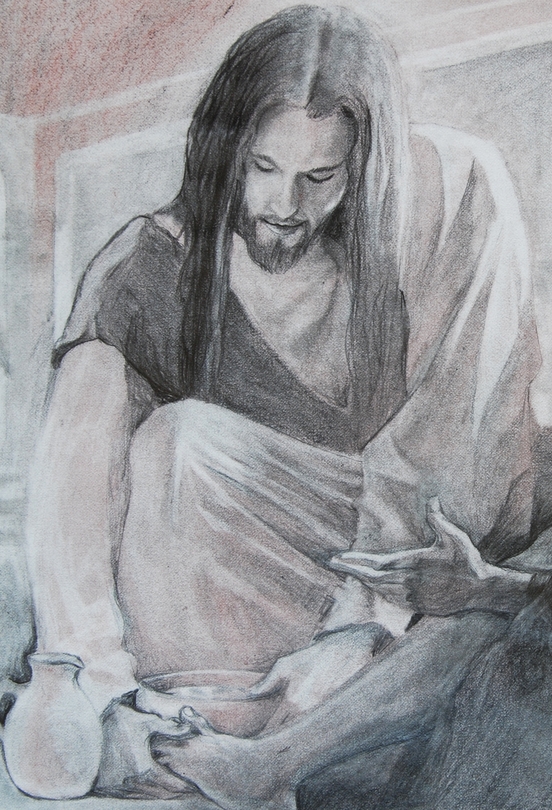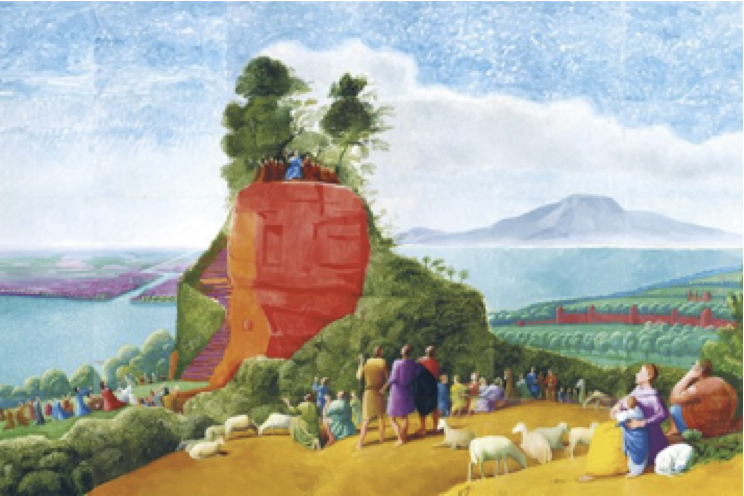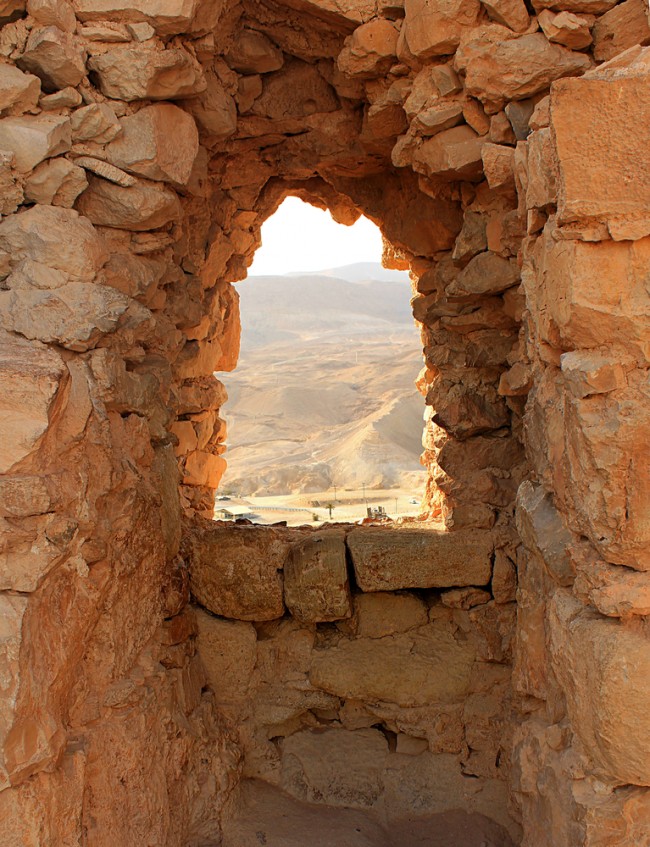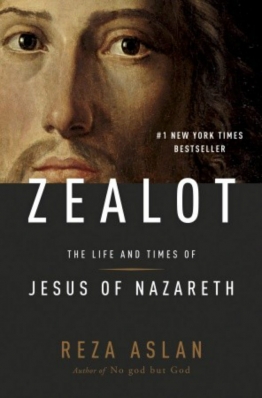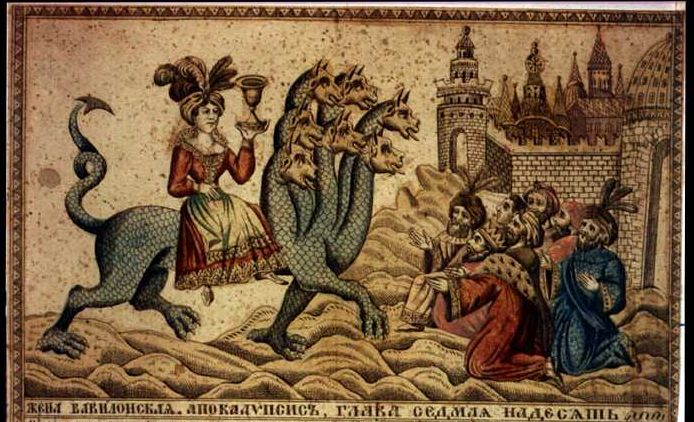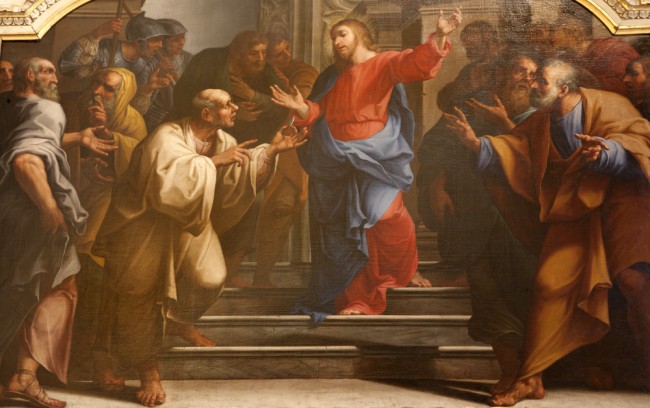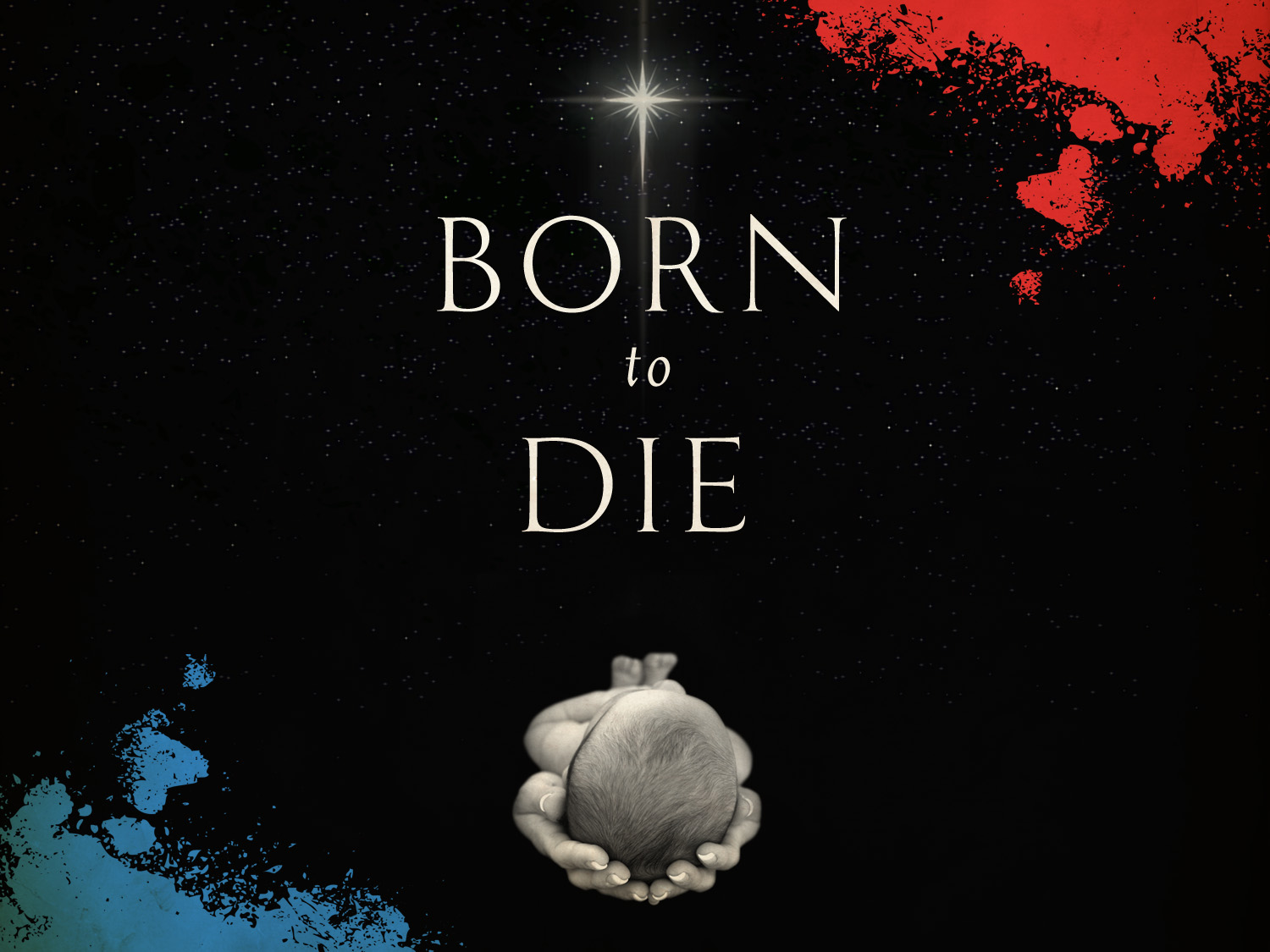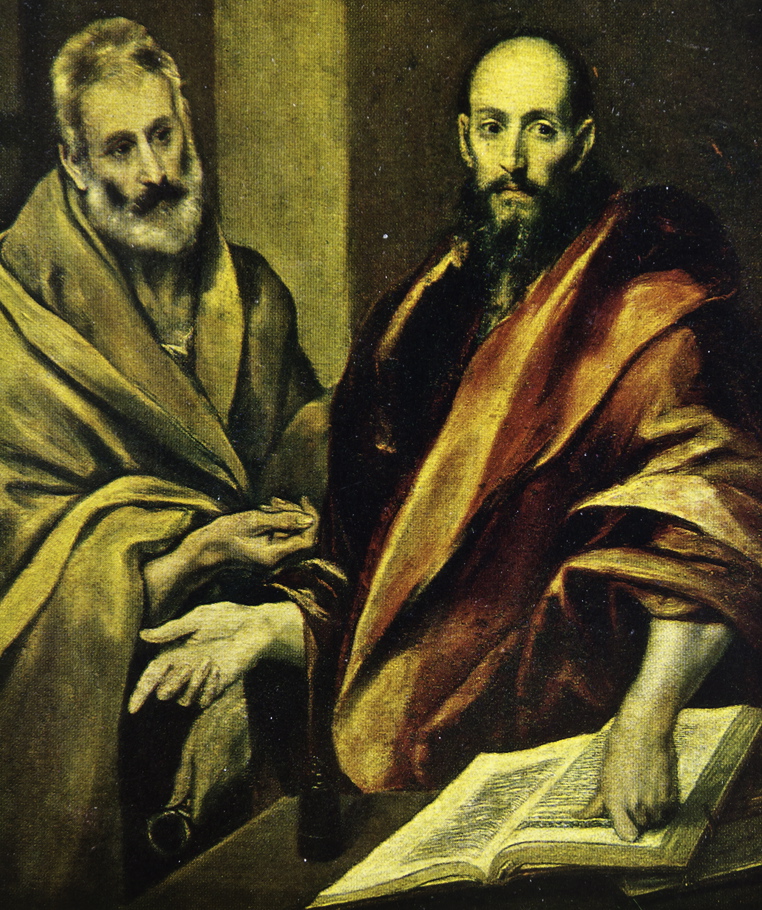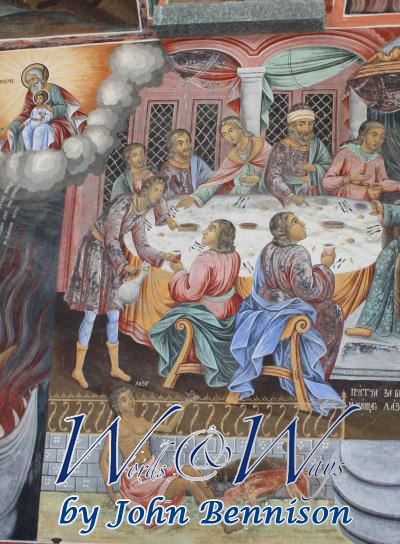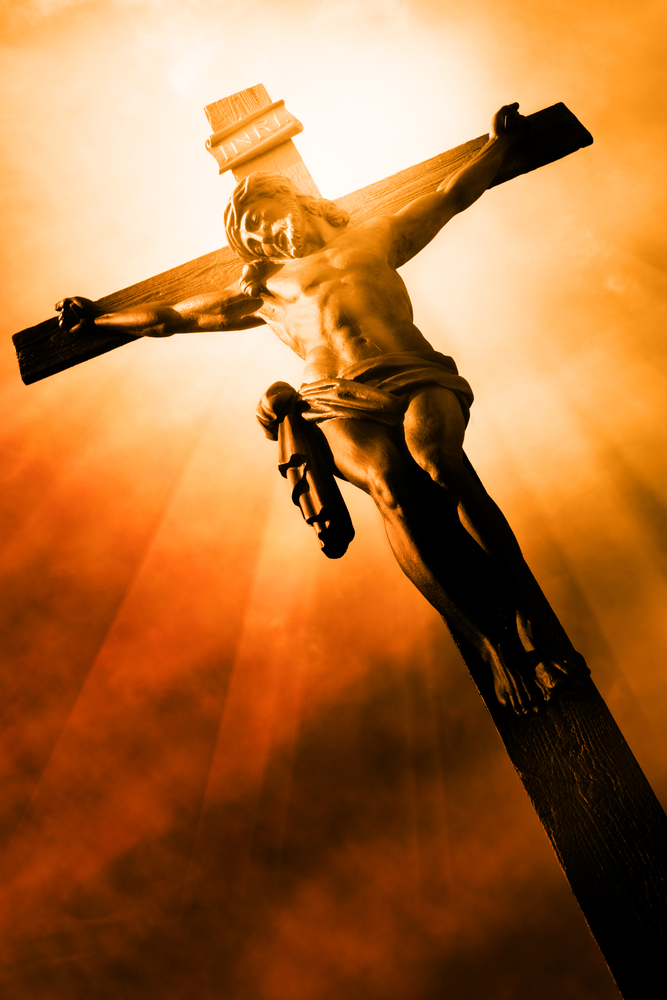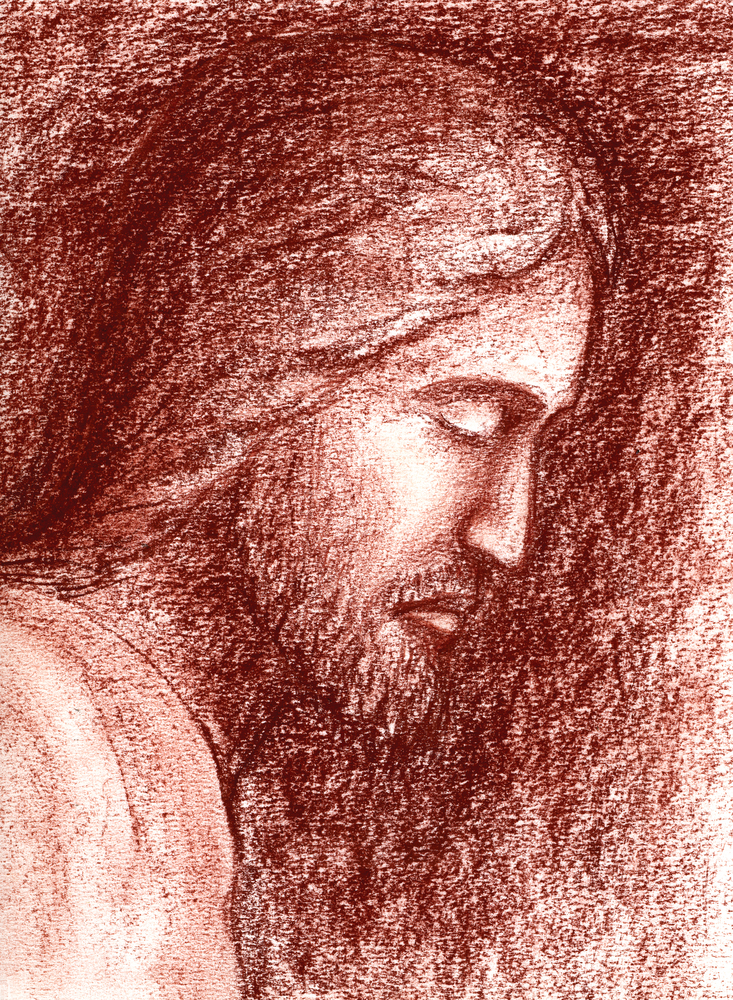Restoration of a Vision from the Christian Faith Tradition
What might constitute an adequate improvement to the world order? This commentary constitutes an exploration of this pesky, perennial question about "a better world" from the vantage point of one faith tradition, and in contemporary context. Its intention is not to offer novelty or any new revelatory insight, but rather to remember and restore a perspective that lies at the heart of a biblical gospel tradition; based on the teachings of a pre-Easter human Jesus.
Genesis opens the Hebrew Bible with two conflicting and irreconcilable creation stories. Obviously neither of these creation myths reported actual events. Even so, there are people who believe that the universe was created exactly as described there simply because this is what the Bible says, so it is fact. Those people despise the Darwinian evolution theory, so they stubbornly grasp for an alternative and end up with literalism or Creationism that demands unquestioning acceptance.
The idea of a second coming of Christ is a mystery, if not explicitly controversial. Jesus’ followers apparently believed he would return during their lifetime after he was crucified. When that didn’t happen, later followers gradually changed the belief into an indefinite “someday.” After two thousand years of waiting, most Christians no longer look for it to happen in their lifetimes and acknowledge that Jesus may have been speaking metaphorically about his return. It is just as likely that those words were put into Jesus’ mouth by the gospel writers themselves. Wishful thinking?
Biblical scholars generally consider those teachings attributed to Jesus in that part of Matthew’s gospel, commonly referred to as the Sermon on the Mount (Matthew 5-7, with the corollary being theSermon on the Plain, Luke 6), as likely comprising much of what can be considered most authentically and historically the real deal. But reaching back as close as we can to who the historical Jesus may have been is not the end of it. At the heart of it, a Jesus ethic itself has little concern with what you believe about the man, but what you do about the message.
But what our guide told us next has stayed in my memory for the almost twenty years since my visit. With a shrug of his shoulders he explained, “Well, we need a site. An important event—we need to have a site. Do we know exactly where it happened? No. But we must have a site so that we can remember.”
a review by Jim Burklo
Do not think that Aslan, a professor of creative writing at my alma mater, the University of California at Riverside, wrote this book to present the Jesus of nonviolent compassion. Aslan zealously pursues an historically angry Jesus who sought to evict the Romans by force and institute an earthly realm of divine justice for the poor.
Who Is the Whore of Babylon?
A typical interpretation when reading the Book of Revelation is John’s attempt to answer the interminable question: How exactly will God, once and for all, set things right? When will the “sorrow and weeping be no more,” and the “tear wiped from every eye?” After reinterpreting over and over again the imminent end that has been repeatedly put on indefinite hold, it merely begs the question, why the postponement? When Revelation is instead understood to be political commentary spun in the form of a fantastic allegorical tale that can be reinterpreted and applied again and again, the question in each succeeding era has more to do with asking the question: Who is the Whore of Babylon, and all she represents? How can we be so easily seduced? And have the words and life of the Galilean sage been lost, even from the time John had his nightmarish vision to our own succumbing today? Read more.
The early Church appears to have been satisfied with the simple affirmation ‘Jesus is Lord’, discovering the Spirit in the power of resurrection. Perhaps our task as progressive Christians is to reinterpret these concepts for our present time. I suspect that this will have more to do with discipleship than with the worship of a divine Christ (Matt 7:21).
Why may the majority of scholars be right, that the Bible is not a reliable book of history, although much of its historical sections are indeed based on actual events and real places in the larger picture?
Paul endorsed the Roman status quo, politically. He made the real issue identification with a descended (divine) savior, spiritually raised and soon to return. The Jerusalem group shared the last point but emphatically not the first two of Jesus' divinity nor acquiescence to Roman rule. Their expected Messiah (dramatically shifted after his death to a returning one) would establish peace with Jewish centrality and abolish the MILITARY dominance of other kingdoms but not the existence of other nations.
When we look at the entire story of Jesus, including his teachings as well as his life, it seems clear his path always presumed a spiritual death before one could experience new life or rebirth. His hodos required a death to the old before there could be a birthto a new way of seeing, a new way of understanding and experiencing life.
December 12, 2012 Yesterday, I passed a church sign that proclaimed Christmas was the story of a baby born to die. It seemed
For reasons I cannot explain, I have often find myself as an adult mired in a bit of darkness during the Christmas holidays.
But the loss of their key center and probably the main leadership and overall strength of the movement opened the way for Pauline Christian influence which is clear particularly in Luke (both his Gospel and Acts).
The great dividing line for two religions and the relationship between them is the period of 66-70 CE, which ended in the destruction of both Jerusalem and the great "Second Temple". For Jews of the time this destroyed the political, economic and religious organization of Israel....
Reconciling Gratitude, Generosity & Greed
The common dream most people have of one day having more than they already have seems to have remained as fleeting and elusive as ever. Meanwhile, the gross disparity and widening gap in this country between the haves and the have-nots has reached a point where an oligarchy of corporate interests posing as individuals shape public opinion and outspend each other as never before in partisan attempts to buy an election.
So in a round-about way, Gamaliel, as quoted by Luke, is giving us a powerful clue about what kind of literature the Gospels are — a unique mix of a few core historical events with lots of theological overlay, all blended with a good dose of the kinds of stories of miraculous signs that we know were common and sometimes persuasive in that day. And not surprisingly…. They still are today!
God is persuasive love, containing but somehow still beyond all that we can grasp, and within whom “we live and move and have our being.”
I've titled this as about the Resurrection, which is just one part of a complex of beliefs... but let's return and end there... What similarities or differences do you see in Paul's Resurrection statements and beliefs and those of the early Jerusalem Jesus-followers?
Mark’s Gospel has often been described as a “enigma’ and this can apply both to the whole of Mark’s text, as well as to nearly all of its mysterious contents. There is not just one story-line, one discourse or one dimension to its depicted characters but Mark presents many and various aspects within his Gospel. This enigma involving multiple dimensions, levels and stages are in evidence in the following five important and multiple aspects of Mark’s Gospel.
Paul insists, "It is for freedom that Christ has set us free." Yes, freedom. Paul was the Apostle of human freedom.
Basically, the Church was developing within a strongly partiarchal and heirarchical society.... Despite the freshness and hopefulness we see in Jesus and Paul, it is not surprising that male domination would soon assert itself and claim exclusive leadership privileges. Maybe women could lead among women, of course... no real complication or threat there.
Bellah’s grand argument is complex but elegant: social cohesion constitutes, simultaneously, a functional mechanism for group survival and an incubator of more complex forms of social evolution; these various forms of social cohesion, in a certain evolutionary stage of social development, crystallized in institutional “religion”; religion became a generalized means of generating social capacities that increase in every new stage of cultural evolution; failing to develop such patterns (a very real possibility) means the neutralization of the evolutionary process itself; and religion, even in its most domineering forms, entails moral reflexivity and social criticism, based upon the crucial distinction between reciprocal hierarchies and brute exercise of domination.
Are you religious? Your answer will depend a lot on what your questioner meant by the concept of “religion” and how you view this concept.
Well, it’s been quite a whirlwind week for same-sex marriage, from North Carolina to Obama to Colorado—and, of course, to the many outraged conservatives concerned with preserving traditional marriage, i.e., the time-honored sacred bond between one man and one woman. Why, just last week, Tony Perkins of the Family Research Council said that marriage has meant just that for over five thousand years. Huh?
2) The Hebrew scriptures, or the Old Testament, represent a religious tradition that is independent of the later Christian faith. The Hebrew scriptures aren't about Jesus, although the Christian scriptures include many references to the Hebrew scriptures. To honor the fundamental differences between the two sets of scriptures doubles the spiritual significance of the entire Bible.
Further, if John Dominic Crossan’s interpretation of Paul’s letters is correct – or at least on the track – the dry bones raised by Ezekiel become a metaphor for those who died in the service of God’s justice; those who died working to restore God’s distributive justice-compassion to God’s earth, and who themselves never saw the transformed earth.
With chapter 7 the anti-Semitism that has haunted Christianity for centuries seems to become unavoidable.
There were different types of protest, some more violent than others. But the vast majority of the people were simply there to make a statement. “We are not going to let you get away with this.”
Hanukkah and Kwanzaa are two other important winter holidays yet the history underlying these celebrations escapes most Christians. Here are brief lessons from History.com.



